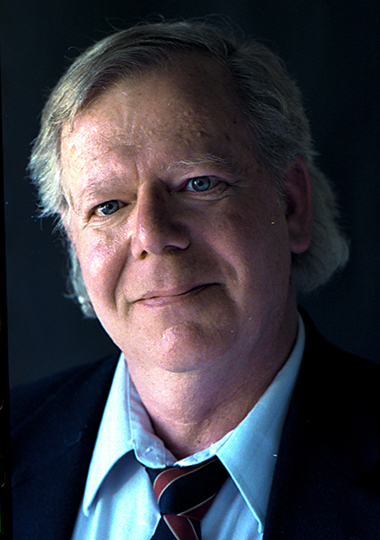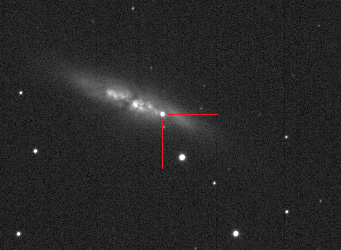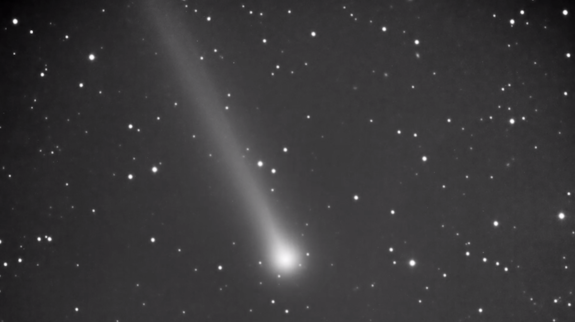
John Breen, professor emeritus of journalism. (Credit: Journal Inquirer)
An icon of my life died this week.
Professor John Breen of the UConn Journalism Department left us far too early but also left a trail of students honoring him in their thoughts and posts.
More than anyone I’ve ever encountered, he taught me to love words. No matter my title or place in life, I will always be a writer deep in my soul. I have struggled to find ways to honor the man. Besides the obvious (there is a scholarship established in his name at the UConn Foundation), I have decided that the natural and right way to do so is through writing.
But first, I need a drink, and so a toast to him—a glass of Irish whiskey—sits beside me.
That I feel the need for a little alcohol-induced ease of mind tells the first part of the story about why John Breen mattered.
He was uncompromising. In the days before Microsoft Word marked all of your errors in red or, even worse, auto-corrected them, John Breen accepted nothing but quality. In one of his classes, he established a rule for assignments: for every typo, you lost a letter grade. Not a circle on your paper. Not a “fix this.” No silver star for “nice try.” He assumed you cared enough about your readers that you wouldn’t insult them. I feared the man and feared my grade. The lesson I carried with me was simple: quality matters. The small things matter. Detail matters.
I partly need the calming drink next to me to even comprehend the act of writing something about John Breen, for I know that this would probably end up with a ‘C’ if he graded it. That a grown man, a professional in matters of writing, can still feel this way should tell you something.
He taught me to be cynical. That’s usually a perjorative word, but I don’t mean it in that sense. Having bombed out of the engineering program, a 19-year-old me found myself in Professor Breen’s Journalism 101 class. On the first day, he told us that to be a reporter, you had to question assumptions.
“If your mother tells you that she loves you, check your sources.”
He said that. He really said that. It’s a remarkably cynical statement, but it is also remarkably true. I don’t think he literally meant that you can’t trust your mother, but the lesson I carried from it is held deeply today.
Question assumptions.
Assume nothing.
Inquire.
Dig deep.
Check your sources.
I know it is the trend today to talk about the decline of a liberal arts education; STEM education will rule the future. There’s some truth to that, I suppose. But can there be a better lesson for life, or a better education (in the philosophical sense of the word), than “check your sources?” With more information available to us than ever, can there be a better requirement for critical thought than “question assumptions?”
Lastly, John Breen taught me the beauty and grace of words. He taught me that my writing will touch people and that there is an awesome responsibility in the act of writing about them. This doesn’t mean that, as a reporter, you should go easy on your subjects. It means you should be fair.
He was a man who seemed to me to be out of place in the modern world, even in 1990. He smoked at his desk. He used a manual typewriter. If he could have worn a fedora with a small piece of paper on the band that read “Press,” he would have. He was more or less straight out of central casting for “All the President’s Men.” With stacks of newspaper everywhere, his office space always seemed to be one poorly thrown cigarette butt from a towering inferno.
I loved that.
The world is worse without John Breen in it. Today’s journalism students—while bright, smart and so capable—are poorer than I was. He last taught me more than two decades ago, but I feel him around me every time I write something.
And although I haven’t spoken to him since the year I graduated UConn, I suddenly miss him.

 A star just exploded nearby, in one of the galaxies in our “Local Group.” It’s all relative, of course. The galaxy, M82, is about 11.5 million light years away, so the tiny dot that is the supernova is light that left M82 right around the time the Amazon River was forming, and long before people existed.
A star just exploded nearby, in one of the galaxies in our “Local Group.” It’s all relative, of course. The galaxy, M82, is about 11.5 million light years away, so the tiny dot that is the supernova is light that left M82 right around the time the Amazon River was forming, and long before people existed. But what I saw in this group of 12- to 16-years olds was largely leadership. Like cooking dinner on a propane stove for their small groups, when it was snowing and their hands were cold and the wind was blowing. Or making sure that the group assumed responsibility for cleaning the site and leaving it better than we found it. How many politicians or CEOs would do that? Would they even call it leadership? Would they recognize it?
But what I saw in this group of 12- to 16-years olds was largely leadership. Like cooking dinner on a propane stove for their small groups, when it was snowing and their hands were cold and the wind was blowing. Or making sure that the group assumed responsibility for cleaning the site and leaving it better than we found it. How many politicians or CEOs would do that? Would they even call it leadership? Would they recognize it? My favorite work project has been our success with student philanthropy at UConn. Part of that is because I have been able to work with some great people on the initiative, but I also love it because it highlights the eternal role of philanthropy in life.
My favorite work project has been our success with student philanthropy at UConn. Part of that is because I have been able to work with some great people on the initiative, but I also love it because it highlights the eternal role of philanthropy in life. Two of the three were easy: Comet ISON was definitely brighter than even a few days before and had a noticeable tail. Comet Lovejoy was incredibly bright but had no tail that I could make out. As Mercury and Saturn rose above the horizon, racing with the sun, I was hoping to see Comet Encke down near Mercury and make it 3-for-3, but couldn’t make it out. Still, it was my first time seeing two comets in one day, so that was noteworthy and quite cool.
Two of the three were easy: Comet ISON was definitely brighter than even a few days before and had a noticeable tail. Comet Lovejoy was incredibly bright but had no tail that I could make out. As Mercury and Saturn rose above the horizon, racing with the sun, I was hoping to see Comet Encke down near Mercury and make it 3-for-3, but couldn’t make it out. Still, it was my first time seeing two comets in one day, so that was noteworthy and quite cool.
 On the 25th, Troop 45 held an astronomy observation session for those working on their merit badges. Scouts got to see Venus and its amazing partial phase, the International Space Station soar overhead, the Pleiades, Polaris, the Summer Triangle and much more.
On the 25th, Troop 45 held an astronomy observation session for those working on their merit badges. Scouts got to see Venus and its amazing partial phase, the International Space Station soar overhead, the Pleiades, Polaris, the Summer Triangle and much more.